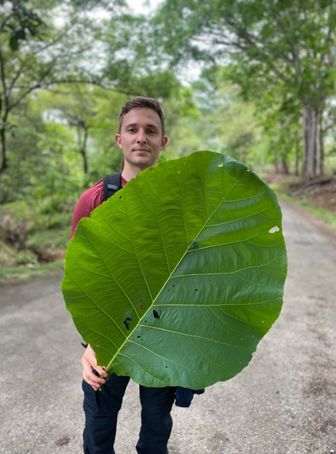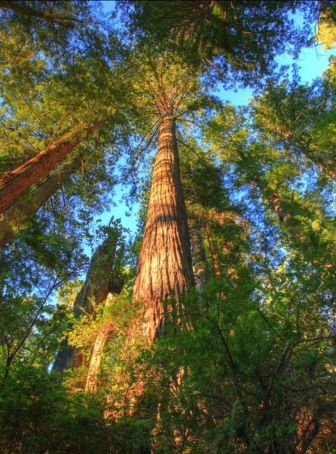The Overstory
Welcome to The Overstory, the tri-annual publication of forest-centric news produced by The Forest School at the Yale School of the Environment. We are excited to share with you how our community is advancing the field of forestry in all its many forms.
Featured Article: Former USDA Scientists Bring Their Expertise to TFS

By: Sara Santiago
As the federal workforce is reshaped, The Forest School at the Yale School of the Environment welcomes four accomplished scientists from the USDA as lecturers and staff: Morgan Grove ’87 YC, ’91 MFS, ’96 PhD, Erika Svendsen ’93 MES, Cameron McKenzie ’23 MFS, and Michelle Kirchner. As they begin the next chapter of their careers, their mission to serve the American people and forests continues at The Forest School.
Celebrated Careers of Science and Practice
Morgan Grove and Erika Svendsen, longtime colleagues and former YSE classmates, were pioneers at the U.S. Forest Service. They credit their training under Professor Bill Burch as preparation for developing community forestry at the agency.
Grove is committed to community-centered forestry in urban areas and spent 29 years in Research and Development at USFS. Svendsen entered USFS through the Northern Research Station after 9/11, where she used trees and nature to help with recovery at the crash sites. She was nominated to the agency’s scientist recruitment program earning her PhD in urban planning. For 23 years, she helped lead science-practice partnerships and pioneered civic mapping work to gain an understanding of forest stewardship at the localized urban level.
Svendsen says their “years of training at Yale prepared us for complexity, contention, and conflict,” and she and Grove applied the motto “all lands, all people” to community forestry, from rural to international to urban landscapes. Together, Grove and Svendsen set up urban field stations in Baltimore, New York City, San Juan, and beyond to cultivate lasting relationships between people and place. They have both retired from the agency, but they have not retired from their mission to promote community forestry, nor from mentoring the next generation of forest stewards and practitioners.
After retiring from USFS, Grove says he “needed to find a place to continue serving the American people.” At the Yale School of the Environment, Grove serves as a lecturer teaching his fall course, “Urban Ecology for Local and Regional Decision Making.” Svendsen has joined the school as the program manager of the Urban Climate Certificate Leadership Program, where she builds the capacity of midcareer professionals as agents of change who can help accelerate the solutions needed to transform cities.
Both Grove and Svendsen have returned to YSE not only as research scientists but as science-practitioners. “Our work has been to create the social infrastructure for nature-based solutions – that’s what we’ve always been about and there’s more meaning now – and there’s an opportunity to do that at Yale,” says Svendsen.

Cameron McKenzie conducted research in Panama as a Master of Forest Science student.
Cameron McKenzie, also an alumnus and former USFS colleague of Grove and Svendsen, joined the U.S. Forest Service’s community engagement team for the Northeast and Midwest as a Presidential Management Fellow after graduating with his MFS degree from YSE. His work helped build capacity and community stewardship across the 15 national forests and grasslands in his region’s footprint.
Currently, McKenzie is a research associate with the Yale Applied Science Synthesis Program, where he continues to conduct forest science research and apply that research to practice. His current work aims to look at the underlying data and design of natural climate solutions projects and determine how they could be better designed to build more trust in carbon markets. McKenzie loved being a student at The Forest School, has remained engaged through the YSE Alumni Board, and hoped he could return to the school to continue advancing forest science.

Michelle Kirchner conducted her research on the ecology of ants in temperate forest canopies during her doctoral studies. Photo: M. Jewell
Michelle Kirchner, who has a PhD in entomology and biology focused on the ecology of ants in North American temperate forest canopies, is driven to apply her research to real-world challenges. As a postdoc at the USDA’s Pollinating Insects Research Unit, she developed relationships with alfalfa growers in Eastern Washington State while managing and implementing a research grant on integrated pest and pollinator management. She found fulfillment in advancing science and land management and building relationships with colleagues and growers.
Kirchner, now a research project manager with the Yale Applied Science Synthesis Program, is excited to contribute to YASSP’s broad research analysis on sustainable land management, including forest carbon, forest canopy goals, and sustainable aviation fluid, and to return to the eastern forests she loves.
Current Joys and Hopes for the Future
Amidst change and redirection, each of these scientists is excited to be a member of the YSE community. Grove is focused on collaboration and helping students understand certain subject matters, “but more importantly, how to be constant and active learners and to think of the organizational networks needed to build good.”
Svendsen hopes to bring enthusiasm and optimism to capacity-building in organizations and connect the cohorts within the certificate program. Both Grove and Svendsen aim to embody their long-time values at the School: mentorship across generations, building place-based partnerships, and being anchors in a community of practice.
“I wake up every day, and I love my job and I love being here,” says McKenzie. “It has made the transition so easy when there’s familiarity here and to have had an established network and community.” McKenzie plans to continue publishing and getting that work into the hands of decisionmakers. He is also motivated to continue shaping the future and the culture of the school as both a staff member and an alumnus.
Kirchner says that she has experienced great community and professional development at the school, including participating in the 9th American Forest Congress as decisions were being made about forest stewardship in the U.S. She hopes to find space to work on insects while also making a real impact in the conversations on carbon markets and biodiversity crediting.
We welcome Grove, Svendsen, McKenzie, and Kirchner to The Forest School — a place to reenergize, build community, and determine what is next in advancing forest science, stewardship, and community. “Erika and I, to the extent that we were effective, were effective because we went together. The only way to affect change is to build communities,” shares Grove. We are grateful for each of these scientists’ brilliance and compassion.







